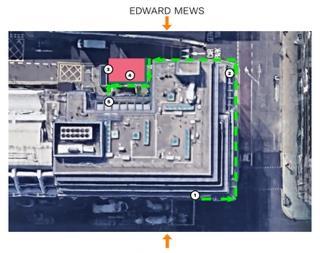Social landlords are embracing the private sector, but much more still needs to be done to unlock additional finance for affordable housing and help us all invest in new communities, says John Carleton of Genesis Housing Association.

The property world loves to chat about ‘placemaking’ and ‘regeneration’. But such phrases have become over-used recently. Given that the public profile of housing has never been higher, we have a prime opportunity to engage public and political support both for development and measures that will genuinely address social issues. There are no easy solutions, but one core belief is that housing should be delivered for whoever needs it.
Enabling key workers and people on low incomes to keep their jobs and maximise their prospects is just as important as ensuring young families can grow and prosper in market-rented homes. Housing continues to be a great delivery mechanism of economic growth. This is why government measures such as Help to Buy and the extension of permitted development rights have been well received with government supporters.
Of course, one of the big debating points will be the extension of Right to Buy. While creating social mobility is a laudable ambition, we think this is the wrong approach. History shows us that homes sold off are not adequately replaced and the Institute for Fiscal Studies has said it would potentially cost “billions of pounds” and “would worsen the UK’s underlying public finance position”.
Like all registered social landlords (RSLs), Genesis has had to evolve and embrace private development to cross-subsidise affordable housing.
With a portfolio worth around £6bn, we are able to access finance in the absence of public subsidy. We use value to create value. Our broad strategy is to deliver homes for sale, market and affordable rent in equal measure which can support the kind of diverse, integrated communities we want to see created.
Public debate has focused around segregation and the lack of affordable rented accommodation. These are systemic problems arising from a continued shortfall in supply. It began when English councils stopped building homes with public money and has continued thanks to arduous planning rules and a range of well-trodden issues.
Blaming it on foreign buyers, prime property developers or on other groups, as some do, is a red herring.

Ultimately, the only solution to building more affordable housing is unlocking additional financing for affordable housing. Our reliance on private development levies paying for affordable housing is never going to be enough.
Many have suggested allowing councils to borrow against their balance sheets, and with the low levels of interest secured through the capital markets by many RSLs in recent years, this would make a lot of sense.
As a society, we need to be doing more to support individuals’ well-being. This means better integration of education, employment, health and planning policy. It goes beyond the remit of RSLs, but we have an important voice in supporting the welfare of our residents and it’s a responsibility we take seriously.
Around 80% of the Genesis stock is in areas that are in the bottom five deciles of the indices of multiple deprivation. So we see investment in both the place and community as a commercial and social imperative.
We naturally want to make those places more attractive for people to live in. Part of that involves us looking at mixed tenure and mixed use and that helps drive the long term value. And creating new opportunities for people to access market-rented homes, for example, is something we see as critical. We were delighted to back the Better Renting for Britain campaign launch recently.
Build to Rent forms a key part of our current development pipeline. As well as Stratford Halo (700 homes across five tenures, including a market-rent tower), we have another iconic building in Colindale, north west London.
The 16-storey Zenith House is a similar-priced rental product, with around 300 units across a host of other tenures. In Chelmsford, Essex, we are also moving into the second phase of our city centre redevelopment just outside the station, which will offer around 300-400 homes at market rent. We’ve certainly put our money where our mouth is and would look very closely at working with partners, again taking development risk but in a joint venture situation.
No longer should housing associations simply be followers and deliverers of government affordable housing policy. We have to make our own way. And the approach we are taking is that a range of tenures is very important to us. That’s the way we’ll continue to develop.
However, it is also vital that we have a renewed focus on the people in our communities and consider how we better support them. These issues - around caring for senior citizens or enabling more mothers to return to work - extend far beyond housing policy. But they are central to creating a healthy and prosperous society, which should, after all, be the shape of any place.
- Visit the RESI website for more information































No comments yet